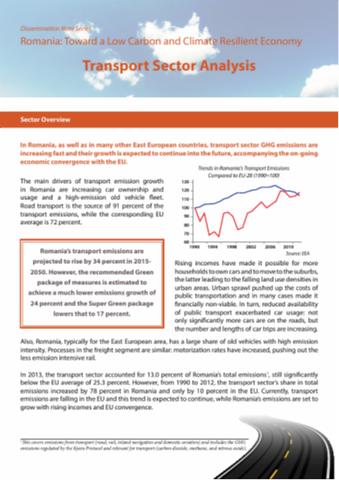The World Bank is a vital source of financial and technical assistance to developing countries around the world. We are not a bank in the ordinary sense but a unique partnership to reduce poverty and support development. The World Bank Group has two ambitious goals: End extreme poverty within a generation and boost shared prosperity.
- To end extreme poverty, the Bank's goal is to decrease the percentage of people living on less than $1.25 a day to no more than 3% by 2030.
- To promote shared prosperity, the goal is to promote income growth of the bottom 40% of the population in each country.
The World Bank Group comprises five institutions managed by their member countries.
The World Bank Group and Land: Working to protect the rights of existing land users and to help secure benefits for smallholder farmers
The World Bank (IBRD and IDA) interacts primarily with governments to increase agricultural productivity, strengthen land tenure policies and improve land governance. More than 90% of the World Bank’s agriculture portfolio focuses on the productivity and access to markets by small holder farmers. Ten percent of our projects focus on the governance of land tenure.
Similarly, investments by the International Finance Corporation (IFC), the World Bank Group’s private sector arm, including those in larger scale enterprises, overwhelmingly support smallholder farmers through improved access to finance, inputs and markets, and as direct suppliers. IFC invests in environmentally and socially sustainable private enterprises in all parts of the value chain (inputs such as irrigation and fertilizers, primary production, processing, transport and storage, traders, and risk management facilities including weather/crop insurance, warehouse financing, etc
For more information, visit the World Bank Group and land and food security (https://www.worldbank.org/en/topic/agriculture/brief/land-and-food-security1
Resources
Displaying 591 - 595 of 4906Romania Toward a Low Carbon and Climate Resilient Economy
In Romania, as well as in many other East European countries, transport sector Green House Gas (GHG) emissions are increasing fast and their growth is expected to continue into the future, accompanying the on-going economic convergence with the European Union (EU). The objective of the analysis was to assess the impact of green policies and investments on transport emissions. For this purpose, the Romania Transport Strategic Emission Prediction Tool (TRANSEPT) was developed.
Disaster Risk, Climate Change, and Poverty
People living in poverty are
particularly vulnerable to shocks, including those caused by
natural disasters such as floods and droughts. Previous
studies in local contexts have shown that poor people are
also often overrepresented in hazard-prone areas. However,
systematic evidence across countries demonstrating this
finding is lacking. This paper analyzes at the country level
whether poor people are disproportionally exposed to floods
Households or Locations?
Policy makers in developing countries,
including India, are increasingly sensitive to the links
between spatial transformation and economic development.
However, the empirical knowledge available on those links is
most often insufficient to guide policy decisions. There is
no shortage of case studies on urban agglomerations of
different sorts, or of benchmarking exercises for states and
districts, but more systematic evidence is scarce. To help
Climate Change Impacts and Mitigation in the Developing World
This paper conducts an integrated
assessment of climate change impacts and climate mitigation
on agricultural commodity markets and food availability in
low- and middle-income countries. The analysis uses the
partial equilibrium model GLOBIOM to generate scenarios to
2080. The findings show that climate change effects on the
agricultural sector will increase progressively over the
century. By 2030, the impact of climate change on food
Urbanization and Property Rights
Since the industrial revolution, the
economic development of Western Europe and North America was
characterized by continuous urbanization accompanied by a
gradual phasing-in of urban land property rights over time.
Today, however, the evidence in many fast urbanizing
low-income countries points towards a different trend of
“urbanization without formalization”, with potentially
adverse effects on long-term economic growth. This paper







